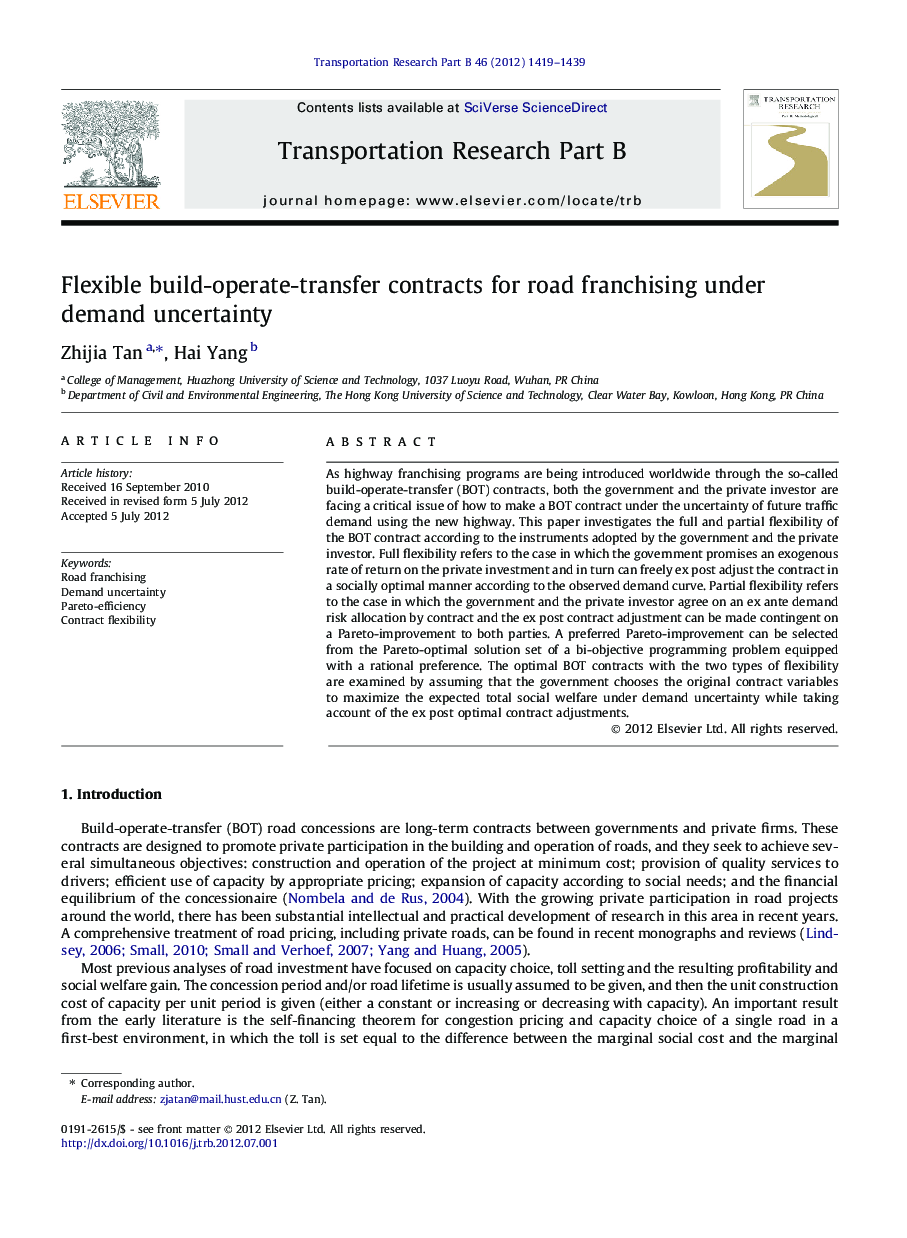| Article ID | Journal | Published Year | Pages | File Type |
|---|---|---|---|---|
| 1132348 | Transportation Research Part B: Methodological | 2012 | 21 Pages |
As highway franchising programs are being introduced worldwide through the so-called build-operate-transfer (BOT) contracts, both the government and the private investor are facing a critical issue of how to make a BOT contract under the uncertainty of future traffic demand using the new highway. This paper investigates the full and partial flexibility of the BOT contract according to the instruments adopted by the government and the private investor. Full flexibility refers to the case in which the government promises an exogenous rate of return on the private investment and in turn can freely ex post adjust the contract in a socially optimal manner according to the observed demand curve. Partial flexibility refers to the case in which the government and the private investor agree on an ex ante demand risk allocation by contract and the ex post contract adjustment can be made contingent on a Pareto-improvement to both parties. A preferred Pareto-improvement can be selected from the Pareto-optimal solution set of a bi-objective programming problem equipped with a rational preference. The optimal BOT contracts with the two types of flexibility are examined by assuming that the government chooses the original contract variables to maximize the expected total social welfare under demand uncertainty while taking account of the ex post optimal contract adjustments.
► Concession period, road capacity and toll level for road franchising are investigated under demand uncertainty. ► Two types of flexible contracts-partially and fully flexible contracts-are introduced to deal with demand uncertainty. ► The properties of the contracts with full and partial flexibility are explored.
